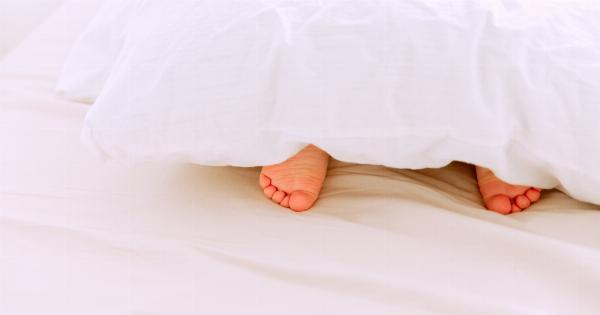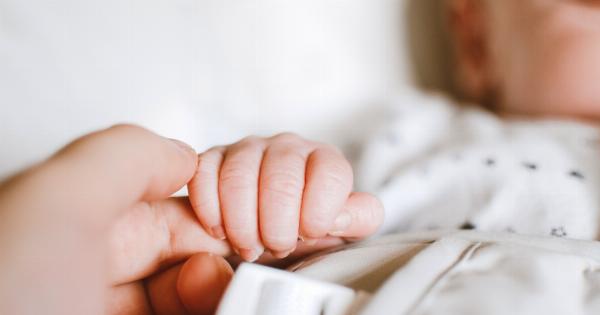As a new parent, one of the biggest challenges you may face is figuring out how much sleep your baby needs. Every baby is different, but there are some general guidelines that can help you determine what the magic number is for your little one.
Age Matters
One of the most important factors to consider is your baby’s age. Newborns sleep a lot – up to 17 hours a day in some cases. As they grow and develop, their sleep needs change.
Here’s a breakdown of how many hours your baby should be sleeping based on their age:.
Newborns (0-3 months)
During the first few months of life, your baby will likely sleep for 16 to 17 hours a day, but in short stretches of two to four hours at a time.
Newborns don’t yet have a set pattern for when they sleep, so you’ll need to follow their cues when it comes to when they nap and when they’re awake.
Infants (3-6 months)
By the time your baby is three months old, they will need around 15 hours of sleep per day. The good news is that they may start to sleep for longer stretches at night, with some waking just once or twice for a feeding.
Naps during the day will likely be at regular intervals.
Babies (6-12 months)
From six to 12 months of age, babies generally need around 14 hours of sleep per day. They may start to sleep for longer stretches at night, and may begin to cut out nighttime feedings altogether.
By this age, they will also likely have a more regular nap schedule, with two or three naps per day.
Toddlers (1-2 years)
Once your little one reaches one to two years old, their sleep needs will decrease slightly, to around 13 hours of sleep per day.
Most toddlers will have one longer nap during the day, usually after lunch, along with a shorter nap in the morning or afternoon. Nighttime sleep may be disrupted by teething, nightmares, or other developmental changes, but most toddlers will still sleep through the night.
Factors That Can Affect Sleep
While the above guidelines are a good starting point for figuring out how much sleep your baby needs, keep in mind that every child is different. There are a number of other factors that can affect how long and how well your baby sleeps, including:.
- Overall health
- Temperament
- Developmental stage
- Diet and nutrition
- Environment (temperature, noise level, light)
- Family routines and schedules
The Importance of Sleep for Babies
It’s no secret that sleep is important for everyone – including babies. In fact, babies need a lot of sleep to support healthy physical and mental development.
Here are some of the reasons why sleep is so important for babies:.
- Brain development: During sleep, the brain processes and stores new information. This is especially important for babies, who are constantly taking in new information and learning new skills.
- Growth and development: Sleep is when the body repairs and rejuvenates itself, which is essential for healthy growth and development.
- Mood and behavior: Babies who don’t get enough sleep may become fussy, irritable, or have trouble concentrating. On the other hand, babies who get enough sleep are generally happier, calmer, and more alert.
- Immune system: Sleep plays a vital role in supporting a healthy immune system. Babies who don’t get enough sleep may be more susceptible to illness.
Tips for Getting Your Baby to Sleep
Now that you know how important sleep is for your baby, we’ll finish things off with some tips for getting your little one to sleep:.
- Establish a consistent bedtime routine, and stick to it as much as possible. This could include a bath, a story, and a lullaby.
- Create a soothing sleep environment. This could mean using blackout curtains to block out light, a white noise machine to block out noise, and making sure the room is the right temperature.
- Offer a nighttime feeding, but avoid feeding your baby to sleep. This can create a habit that’s difficult to break.
- Encourage daytime naps, but don’t let your baby sleep too much during the day. This can interfere with nighttime sleep.
- Offer comfort and reassurance if your baby wakes up during the night, but try not to create any sleep associations (such as rocking your baby to sleep) that could make it difficult for them to fall back asleep on their own.
By following these guidelines, you’ll be on your way to helping your baby get the sleep they need for healthy growth and development.


























